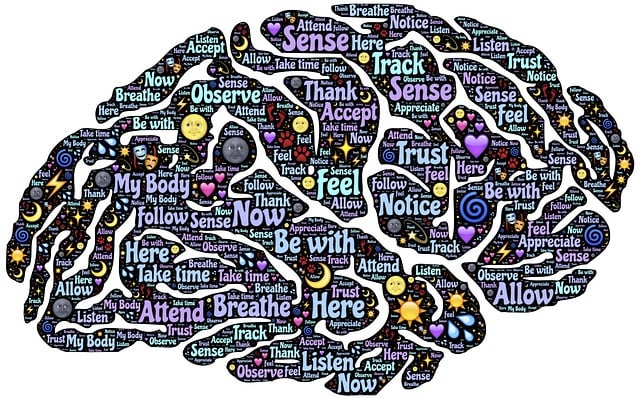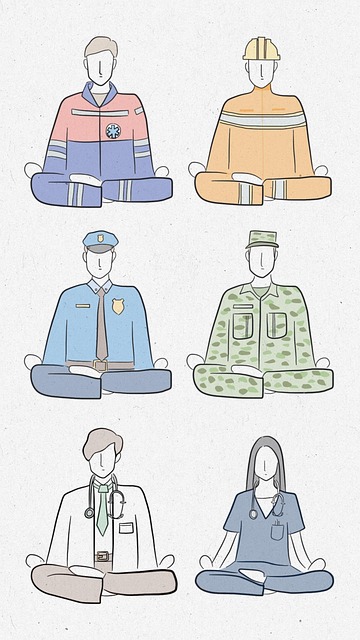Castle Rock Gender-Affirming Care Therapy is a specialized, comprehensive approach to mental health care that addresses the unique challenges faced by individuals, especially those with gender dysphoria. By focusing on empathy building, trauma support, and self-awareness exercises, therapists create safe spaces for clients to develop essential social skills. This integrated therapeutic model combines coping skill development, crisis intervention guidance, and mental health education to empower clients in navigating social situations, fostering connections, and enhancing overall well-being through effective communication and relationship building. The Mental Wellness Podcast Series further complements this care by providing accessible resources outside therapy sessions.
Social skills training is a powerful tool in managing mental health conditions, fostering better relationships, and enhancing overall well-being. This comprehensive guide explores the intricate link between social abilities and mental health, highlighting the beneficial role of Castle Rock Gender-Affirming Care Therapy. We delve into common challenges faced by individuals with mental health issues in social interactions, offering practical strategies for effective communication and relationship building. Learn how to cultivate social skills through therapy sessions and carry these valuable lessons into daily life.
- Understanding the Link Between Social Skills and Mental Health
- The Role of Castle Rock Gender-Affirming Care in Therapeutic Settings
- Identifying Challenges in Social Interaction for Individuals with Mental Health Conditions
- Strategies for Effective Communication and Relationship Building
- Practical Tips for Enhancing Social Skills Through Therapy and Beyond
Understanding the Link Between Social Skills and Mental Health

The connection between social skills and mental health is a crucial aspect often overlooked in traditional therapy approaches. Many mental health conditions can isolate individuals, making it challenging for them to navigate social interactions, which in turn exacerbates their symptoms. Castle Rock Gender-Affirming Care Therapy recognizes this vital link and incorporates strategies that foster empathy building and promote healthy relationships. By addressing these skills, individuals gain the confidence to engage with others, leading to improved mental wellness.
Empathy Building Strategies are at the core of this therapeutic approach. Learning to understand and share the feelings of others is a powerful tool in managing conditions like anxiety, depression, and PTSD. Trauma Support Services play a significant role here, as many individuals struggle with social connections due to past traumas. Through specialized techniques, therapists help clients process these experiences and build resilience, making it easier for them to form meaningful relationships and participate in the Castle Rock community. The Mental Wellness Podcast Series Production also serves as an extension of this care, offering accessible resources for those seeking additional support outside of therapy sessions.
The Role of Castle Rock Gender-Affirming Care in Therapeutic Settings

Castle Rock Gender-Affirming Care Therapy plays a pivotal role in therapeutic settings, offering specialized support for individuals with mental health conditions. This approach is particularly beneficial for managing complex cases, especially those involving gender dysphoria or related issues. By prioritizing self-awareness exercises tailored to each client’s unique needs, therapists facilitate an environment of safety and acceptance. This not only aids in anxiety relief but also empowers clients to navigate their identities with greater confidence.
Integrating Castle Rock Gender-Affirming Care into therapeutic practices goes beyond treating symptoms; it involves comprehensive risk management planning for mental health professionals. Such strategies ensure that care remains effective while minimizing potential risks within the therapeutic setting. Through these inclusive methods, professionals can foster profound positive changes in clients’ lives, ultimately enhancing their overall well-being.
Identifying Challenges in Social Interaction for Individuals with Mental Health Conditions

Many individuals with mental health conditions face challenges in social interactions due to a variety of factors. These can include symptoms of their specific condition, such as anxiety or depression, which may hinder their ability to engage in conversations or participate in social activities. Additionally, stigma and self-consciousness often associated with mental health struggles can lead to avoidance of social situations, further isolating these individuals.
In the context of Castle Rock Gender-Affirming Care Therapy, understanding these challenges is crucial. Mental health professionals play a vital role in facilitating coping skills development through strategies like positive thinking exercises and risk assessment techniques. By addressing these issues head-on, therapists enable clients to navigate social situations with greater confidence and ease, fostering connections and enhancing their overall well-being.
Strategies for Effective Communication and Relationship Building

Developing strong social skills is a key aspect of recovery and well-being, especially for individuals navigating mental health conditions like those who seek Castle Rock Gender-Affirming Care Therapy. Effective communication forms the foundation of healthy relationships. Training in this area can help clients learn to express their needs, emotions, and boundaries assertively yet respectfully. This includes practicing active listening, where professionals and clients engage in a two-way conversation, fostering understanding and empathy.
Relationship building is another crucial aspect. Mentals health professionals can guide clients in initiating and maintaining social connections by teaching skills such as small talk, conflict resolution, and recognizing social cues. These strategies are essential for creating supportive networks and enhancing overall mental resilience. Incorporating these techniques into therapy sessions, coupled with Crisis Intervention Guidance and Mental Health Education Programs Design, can empower individuals to navigate social situations more confidently and build meaningful relationships that contribute to their long-term recovery.
Practical Tips for Enhancing Social Skills Through Therapy and Beyond

Social skills training is a powerful tool in improving mental health outcomes, offering individuals coping mechanisms to navigate social interactions with confidence. For those seeking Castle Rock Gender-Affirming Care Therapy, understanding and practicing these skills can be life-changing. Beyond traditional therapy sessions, here are some practical tips to enhance your social capabilities:
Engage in regular social activities, starting small. Joining support groups or community events allows for structured interactions while providing a safe space to practice. Mental health awareness advocates suggest building these habits as they foster a sense of belonging and can significantly impact recovery. Additionally, consider learning specific skills tailored to your needs through therapy sessions, focusing on communication techniques, empathy development, or managing social anxiety. A comprehensive approach, combining Castle Rock Gender-Affirming Care Therapy with practical strategies, empowers individuals to advocate for themselves in various social settings, enhancing their overall well-being and quality of life.
Social skills training, particularly when guided by innovative practices like Castle Rock Gender-Affirming Care Therapy, plays a pivotal role in managing mental health conditions. By addressing challenges in social interaction and implementing effective communication strategies, individuals can enhance their relationships and overall well-being. These tailored therapeutic approaches offer hope and practical tips for those seeking to navigate the complexities of social connections while managing their mental health journeys.














